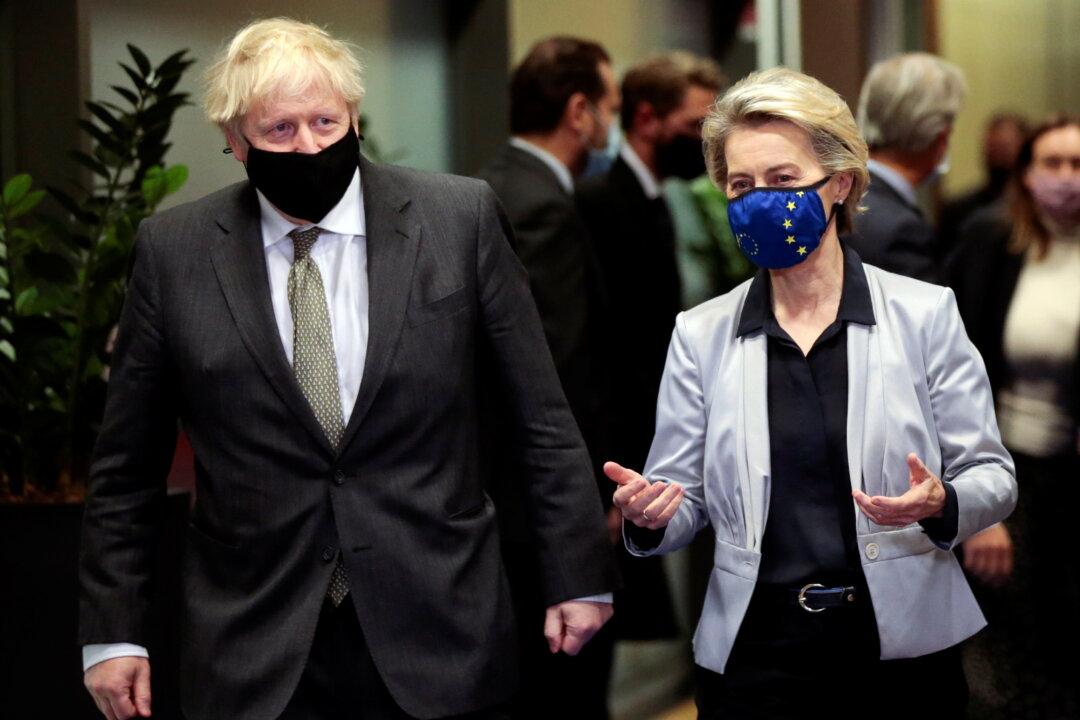The face-to-face meeting between British Prime Minister Boris Johnson and EU Commission President Ursula von der Leyen on Wednesday evening failed to produce a breakthrough on post-Brexit trade relations.
“We had a lively and interesting discussion on the state of play across the list of outstanding issues. We gained a clear understanding of each other’s positions. They remain far apart,” the two leaders said in a joint statement after their talks over dinner at the headquarters of the European Commission.





